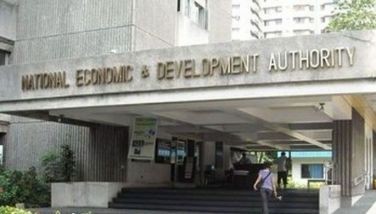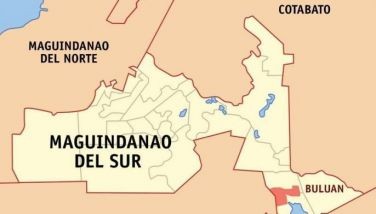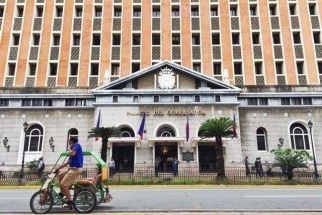Lawmakers reject call to repeal Rice Tariffication Law

MANILA, Philippines — Leaders of the House of Representatives yesterday rejected calls to repeal Republic Act 11203 or the Rice Tariffication Law to address the crisis hounding rice farmers.
Deputy Speaker Mikee Romero and Cagayan de Oro Rep. Rufus Rodriguez, who chairs the constitutional amendments committee, thumbed down the proposal of their colleagues to either repeal or amend the law that reportedly caused the drop in farmgate prices of palay.
Romero, an economist and businessman, explained that the law need not be repealed as it has so far served its purpose of providing food stability and lowering rice prices.
The 1-Pacman party-list representative, however, recognized the need to find solutions to address the concerns of rice farmers affected by the implementation of the law.
“One of the objectives of the Rice Tariffication Law is to increase the income of rice farmers. If this is not being met, then we need to find a solution and strike a balance between the interest of the consumers and the welfare of our farmers,” Romero told The STAR.
He said the National Food Authority (NFA) should not be allowed to import rice given the excess rice production of local farmers.
“I personally witnessed the neck-deep corruption in the NFA,” he said.
Romero had recommended the use of some P29-billion budget from the government’s conditional cash transfer (CCT) program to purchase palay from farmers.
He suggested that the fund intended as rice subsidies to CCT beneficiaries of the Department of Social Welfare and Development (DSWD) could be used to procure palay from farmers this harvest season.
Rodriguez agreed with Romero that repealing RA 11203 is not the solution to the rice crisis.
He said the government should instead provide support to rice farmers, adding that the P10-billion allocation to purchase palay from farmers in the proposed 2020 budget would not suffice.
Other members of the House have proposed amendments in the law to address the rice crisis.
Quezon City sixth district Rep. Jose Christopher Belmonte and Occidental Mindoro Rep. Josephine Ramirez-Sato sought amendment of the Rice Tariffication Law, which they said led to the unimpeded importation of rice with corresponding tariffs.
Belmonte, secretary general of the opposition Liberal Party, pushed for amendment of the law to allow the use of up to P13 billion as immediate assistance to rice farmers.
Sato said her constituents have been complaining of low palay prices of P7 per kilo.
Last month, House members from different blocs filed House Joint Resolution No. 18 seeking to provide the NFA with P15-billion supplemental budget to buy at least 750,000 metric tons of palay from local farmers at a farmgate price of P20 per kilo.
The measure would compel the NFA to sell the rice purchased from local farmers at P27 per kilo.
The lower chamber was not able to tackle the proposed measure before it ended its session on Wednesday and is expected to deliberate on it upon resumption of session next month.
Limited ricemills
Piolito Santos, NFA regional director for Central Luzon, said the grain agency needed to tap private traders in milling its palay stocks because the agency has limited ricemill facilities.
Santos pointed out that the NFA’s procurement of services such as palay milling is in consonance with the provisions of RA 9184 or the Government Procurement Reform Act.
He said the NFA has only five ricemills in Central Luzon that can process 2,400 bags of rice per day.
“We need to utilize the services of private ricemills in the locality where our stocks of palay are stored,” he said.
At least 1.9 million bags of palay are stored in NFA warehouses in the region.
“That’s why we cannot comply with the scheduled milling period,” Santos said.
Santos noted that during previous milling operations, the NFA in Central Luzon utilized about 50 private ricemills with 24,000 bags daily milling input.
The milled palay becomes the government’s rice buffer stock, Santos said.
He added the government’s palay inventory needs to be milled or replenished to preserve its quality and help decongest NFA warehouses. – With Ramon Efren Lazaro
- Latest
- Trending





























